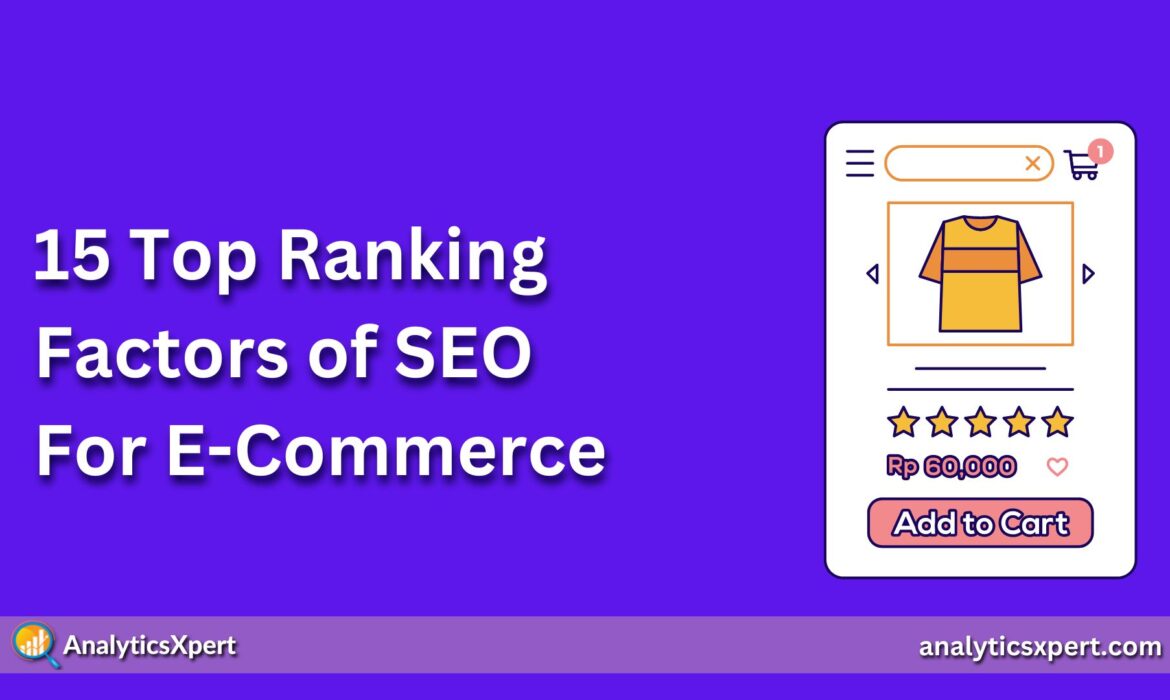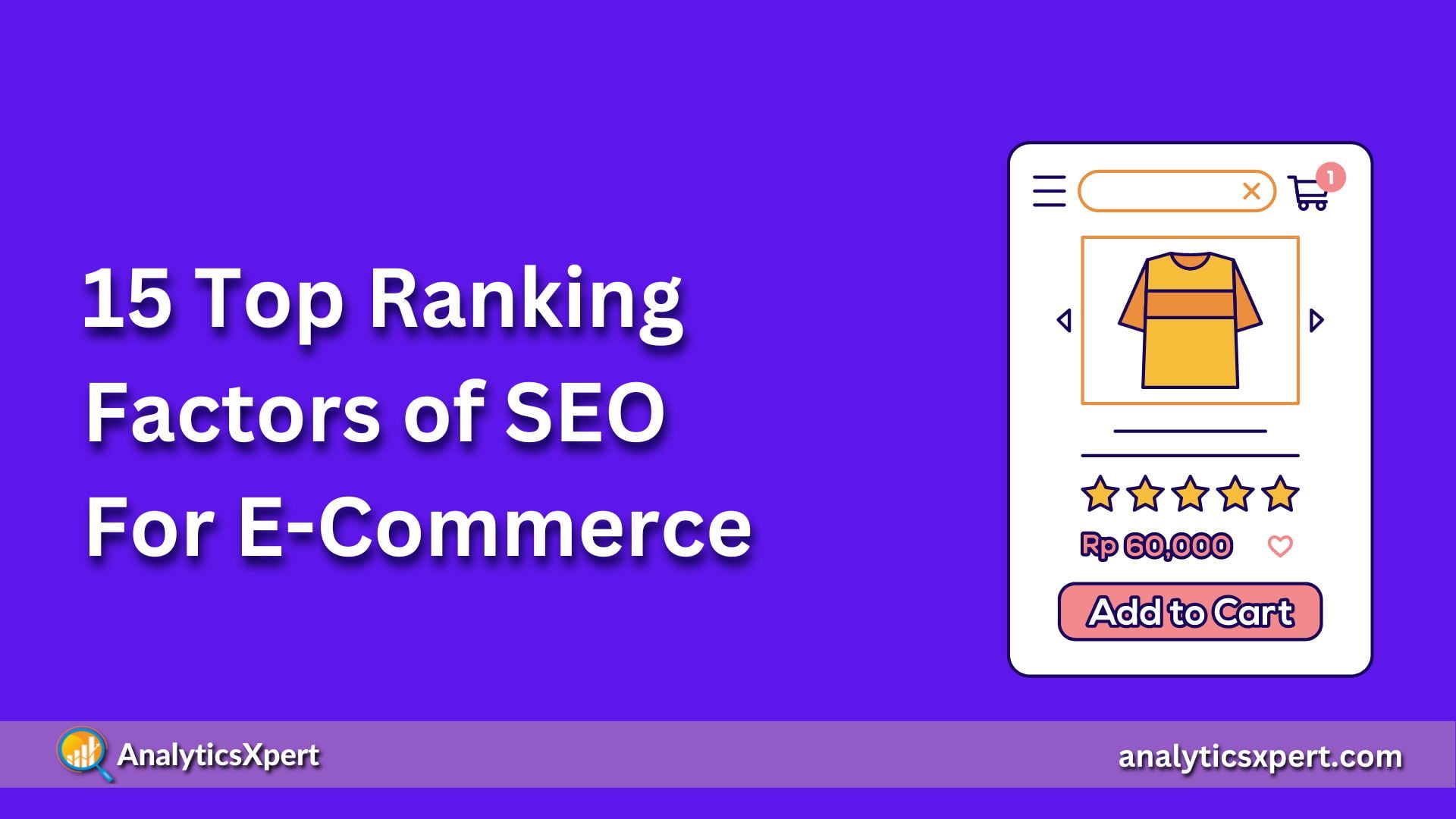

Effective SEO for E-commerce websites is the key to elevating visibility, traffic, and conversions. In modern times, the importance of having an effective website for your business cannot be ignored. With several e-commerce websites emerging frequently, it is crucial to do proper SEO for e-commerce websites to generate more traffic by gaining more online visibility.
In this article, we take a closer look at effective SEO strategies especially tailored for e-commerce websites, to help them succeed in the competitive world of online retail.
Introduction: The Importance of SEO for E-commerce
In the present-day challenges of online retail, having a functional website isn’t enough.
Your potential customers must be able to find your business. SEO for e-commerce plays a pivotal role in making your website rank higher on search engines, and thereby driving more traffic to your website, increasing the overall conversions.
Keyword Research: The Foundation of SEO For E-commerce
Effective SEO for e-commerce starts with thorough keyword research. Identify keywords that align with your products and resonate with your target audience’s search intent. Long-tail keywords are particularly valuable for e-commerce, as they capture specific queries and indicate higher purchase intent.
On-Page Optimization: Tailoring Your Product Pages
Optimizing your product pages by incorporating relevant keywords into titles, meta descriptions, headers, and product descriptions is crucial for the proper SEO of e-commerce website. Use high-quality images and optimize their alt text for better visibility in image searches. The product descriptions should also focus on the keywords.
Technical SEO: Ensuring Smooth Site Performance
A well-structured website with fast load times is crucial for user experience and SEO for e-commerce. Ensure proper indexing, optimize your website’s speed, and implement schema markup to enhance search engine understanding of your products.
User Experience: Enhancing Navigation and Engagement
A seamless user experience is vital to prevent bounce-off, boosting efforts of SEO for e-commerce websites and ultimately leading to more conversions. Organize your products into categories, implement a clear navigation menu, and make the checkout process as smooth as possible. Engage users with compelling call-to-actions and interactive elements.
Content Creation: Building Authority and Engagement
Content Marketing is perhaps the most powerful way to boost SEO for e-commerce websites. Create informative and engaging content related to your products. This could include blog posts, buying guides, and how-to articles. Valuable content not only engages users but also attracts backlinks, boosting your site’s authority.
Mobile Optimization: Capturing the Mobile Shopper
With the rise of mobile shopping, optimizing your website for mobile devices is non-negotiable. A responsive design, fast mobile load times, and user-friendly navigation are essential for catering to mobile shoppers. To boost SEO for e-commerce websites, ensure that the website is tailored to meet the demands of mobile users, allowing seamless experience across various devices.
Local SEO: Connecting with Local Customers
If you have a physical store or serve a local audience, local SEO is indispensable. Optimize your Google My Business listing, acquire local citations, and encourage customer reviews to enhance local visibility. This will give an immense boost to your SEO of e-commerce websites.
E-commerce Link Building: Establishing Authority
Build high-quality backlinks from reputable websites. Collaborate with influencers, guest post on industry blogs, and ensure your products are featured in relevant online publications. Good quality links are a great boost to SEO for e-commerce websites.
Product Descriptions: Balancing SEO and Persuasion
Craft compelling and informative product descriptions that not only incorporate keywords but also persuade customers to make a purchase. Highlight the benefits and unique selling points of each product.
E-commerce SEO Tools: Empowering Your Strategy
Utilize SEO tools like SEMrush, Ahrefs, and Moz to conduct competitor analysis, track keyword rankings, and identify opportunities for improvement. By analyzing the metrics from these tools, you can boost SEO for e-commerce website.
Measuring Success: Metrics for E-commerce SEO
Measure the effectiveness of your efforts of SEO for e-commerce through metrics like organic traffic, conversion rates, average order value, and search engine rankings.
E-commerce SEO Pitfalls to Avoid
Beware of common pitfalls such as duplicate content, thin product descriptions, and neglecting mobile optimization. Though seemingly harmless, such practices can greatly hinder your SEO efforts for e-commerce website.
Future Trends: Evolving Your E-commerce SEO
Stay updated with evolving SEO trends, such as voice search optimization, visual search, and AI-powered customer experiences. The key to effective SEO for e-commerce and thereby, establishing a successful business presence, is to stay on top of emerging trends and seamlessly incorporate them into your digital marketing strategy.
Conclusion: Elevate Your E-commerce with Effective SEO
By implementing a comprehensive SEO strategy, e-commerce businesses can thrive in the digital realm. From keyword research to user experience enhancements, each step contributes to better visibility, increased traffic, and higher sales.
It is important to understand that SEO is an ongoing process, and you must continuously adapt your strategies to stay ahead of the competition.
You can also try out our affordable SEO services for small businesses at AnalyticsXpert.
How long does it take to see results from e-commerce SEO efforts?
SEO is a long-term strategy. You may start seeing improvements in your e-commerce website’s SEO within a few months, but significant results can take six months to a year.
Is mobile optimization really necessary for e-commerce?
Absolutely. Mobile optimization is crucial as a large portion of online shoppers use mobile devices to browse and shop.
How often should I update my product descriptions?
Regularly update your product descriptions to keep them fresh, accurate, and aligned with any changes in your offerings.
Can I handle SEO for my e-commerce website on my own?
While basic SEO can be done in-house, working with SEO experts can yield more comprehensive and effective results for your e-commerce website
What role do reviews play in e-commerce SEO?
Positive customer reviews not only build trust but also enhance the website’s credibility and rankings, boosting SEO for your e-commerce website.

